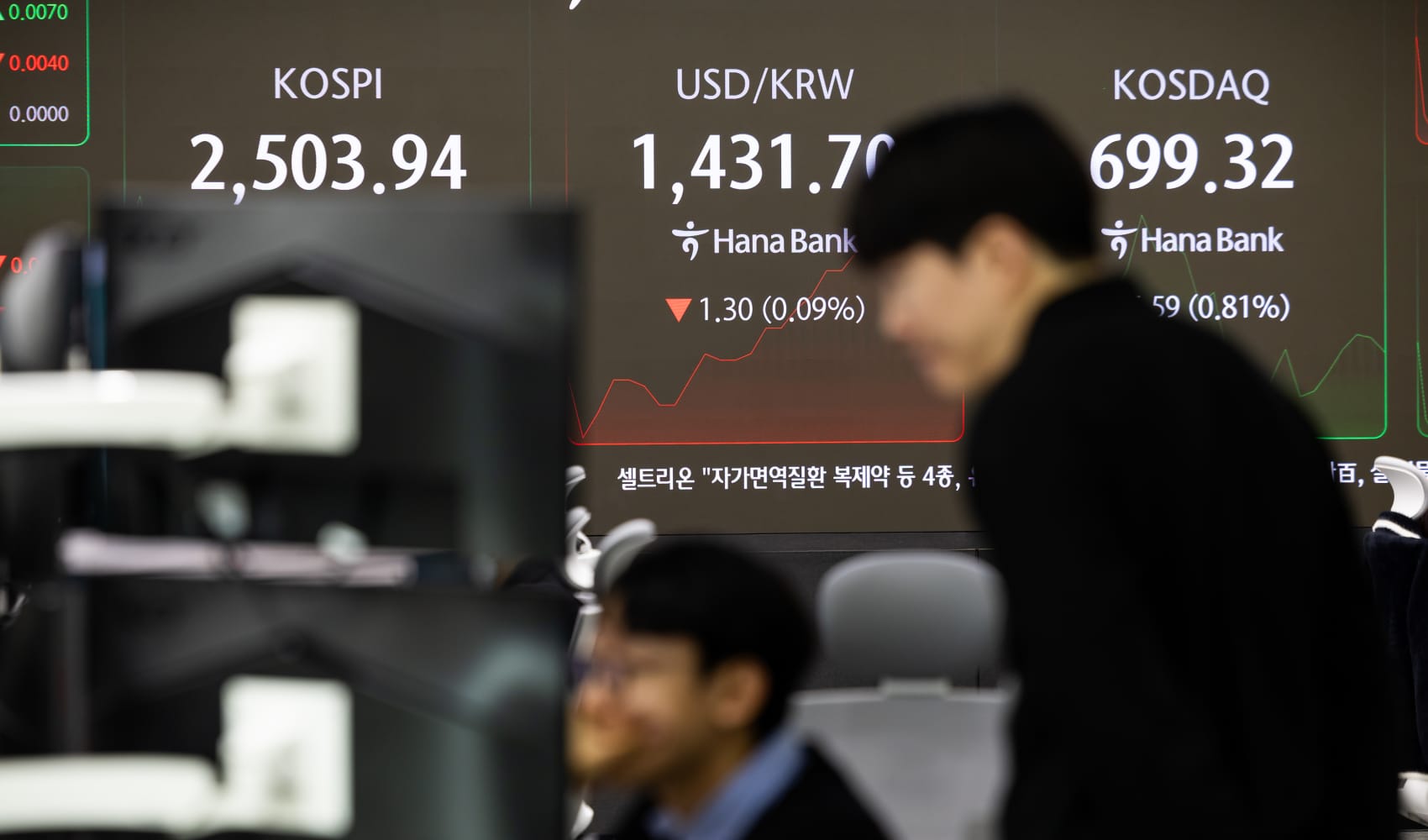
Applying to jobs is a part of Paloma Canseco's regular routine right now, talking to an interactive AI powered recruiter on the phone is not.
But it may soon be.
After filling out a job application in mid-October, the New York-based graphic designer tells CNBC Make It she soon found herself on the phone with a voice who described themselves as a "virtual recruiter."
The call began with basic screener questions like if she was allowed to work in the U.S. and if she had a bachelor's degree. She knew she wasn't on the phone with a live person and assumed the voice at the end of the line was simply reciting pre-recorded questions, "but then the voice felt very natural, which was kind of scary, like very human," Canseco says.
Get Tri-state area news delivered to your inbox. Sign up for NBC New York's News Headlines newsletter.
She noticed that the voice was interacting with her, giving responses like, "'Oh that's very interesting' or 'Oh that's perfect for what we're looking for.'" That's when she says it clicked, she wasn't just on the phone with a robot, the robot was using artificial intelligence to conduct the screener.
"When it called, I was like, 'Is this for real?'" Canseco says. "I couldn't tell if it was a real person or software or an AI. It was very difficult to tell."
After some basic questions, the virtual recruiter asked her to recall her last design experience. That's when Canseco says she hung up: "If a company is not going to spend five minutes even screening someone, then it's probably not the kind of company culture I'm looking for right now."
Money Report
After posting her experience on LinkedIn, she says multiple people reached out to her sharing similar experiences with "interactive" AI recruiters — one person told her it happened to them four months ago with the same company.
AI in recruiting is "here, real and incorporated"
AI in recruiting is a relatively new phenomenon, but companies are already using it to varying degrees.
"It's definitely here, it's real, it's incorporated," says Brent Orsuga, founder of Pinnacle Growth Advisors, a headhunting a recruitment firm specializing in supply chain and logistics companies.
In October, Chipotle announced its own AI powered recruiter named "Ava Cado," who will help hiring managers schedule interviews, collect basic information and answer questions about the company.
Ava Cado is powered by AI recruitment software company Paradox, which serves over 1,000 clients globally including Amazon, McDonald's, General Motors and Pfizer, according to its website. Chipotle's AI recruiter will not review resumes or conduct any live interviews, a spokesperson for the company tells CNBC Make It.
While many companies are opting to use AI as a scheduling and logistical tool in the recruitment process, leading self-recorded interview platforms are also using AI: Spark Hire can generate job descriptions and interview questions for specific roles and HireVue's AI models can evaluate candidate responses to interview questions.
Companies such as Apriora take it a step further, offering AI interviewers capable of conducting real-time, responsive video interviews.
Interactive AI Interviews will be a new norm by 2025
Orsuga says we can expect interactive AI interviews to be a new norm by 2025.
"It's already in place, it's just people embracing it and starting to implement it," Orsuga says. "This is not something that is years away. This is months away at best."
Orsuga says there are benefits to using AI in the interview process for companies and candidates. During screener interviews where people usually fall into three buckets: yes, no and maybe, Orsuga says AI can be helpful in eliminating the candidates who are clearly unqualified.
The practice also can paradoxically bring back the "human" in human resources, he says, allowing applicants the ability to interact and speak on their own behalves instead of simply being judged and potentially rejected based on resumes and cover letters.
The main concern for Orsuga is not knowing what the AI is being told to pick up on. He says AI can be tailored to pick up on anything from how clearly a candidate communicates to their physical appearance to the background behind an applicant.
In traditional HR, removing bias is crucial, Orsuga says. In an interactive AI interview, he says there's a lot more uncertainty.
"We are the generation that is beta testing all of this," Orsuga says. "There's going to be some mistakes, there's going to be some good and there's going to be some bad that comes out of it, that's for sure."
"There are humans applying to these jobs"
Canseco says that if she comes across another interactive AI interview, she would probably hang up again.
While she acknowledges that there are merits to AI in the job recruitment process, she says she worries that interactive AI interviews will lessen human interaction in a process that's "very human related," making the process more "scary and difficult."
"There are humans applying to these jobs, we invest a lot of time in each job application," says Canseco adding that the use of AI makes the process feel impersonal and disconnected from recruiters and hiring managers.
This story has been updated to more accurately reflect how virtual interview platforms are using AI.
Want to earn more money at work? Take CNBC's new online course How to Negotiate a Higher Salary. Expert instructors will teach you the skills you need to get a bigger paycheck, including how to prepare and build your confidence, what to do and say, and how to craft a counteroffer. Start today and use coupon code EARLYBIRD for an introductory discount of 50% off through November 26, 2024.
Plus, sign up for CNBC Make It's newsletter to get tips and tricks for success at work, with money and in life.






